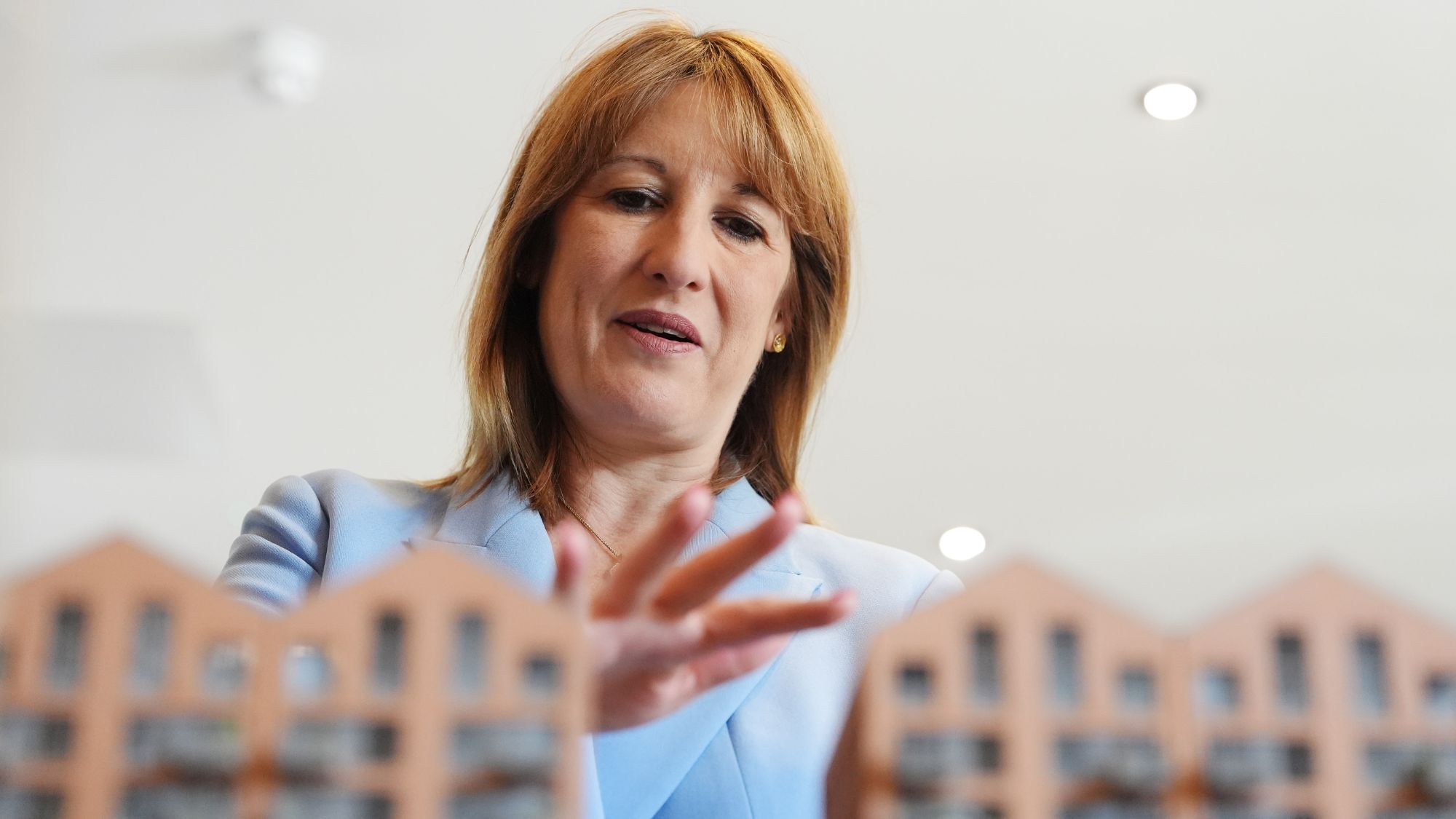How a UK wealth tax could work
A levy could be on the agenda as Rachel Reeves attempts to get the nation's finances back on track

A free daily email with the biggest news stories of the day – and the best features from TheWeek.com
You are now subscribed
Your newsletter sign-up was successful
With Chancellor Rachel Reeves under more pressure to balance the nation's books, a wealth tax has been floated as a viable option.
Former Labour leader Lord Kinnock told Sky News that a wealth tax would be a "substantial gesture in the direction of equity fairness".
He suggested "a good way of raising funding" would be to introduce a 2% tax on assets above around £10 million.
The Week
Escape your echo chamber. Get the facts behind the news, plus analysis from multiple perspectives.

Sign up for The Week's Free Newsletters
From our morning news briefing to a weekly Good News Newsletter, get the best of The Week delivered directly to your inbox.
From our morning news briefing to a weekly Good News Newsletter, get the best of The Week delivered directly to your inbox.
Reeves previously shunned interest in such a levy, but the prime minister's official spokesperson refused to rule out a wealth tax in the next Budget.
The suggestion comes amid "speculation" of new tax increases, said Yahoo Finance, as the recent Labour U-Turn had "severely diluted" the government's original controversial plans for welfare reforms.
What is a wealth tax?
The idea behind a wealth tax is that imposing an extra levy on the super-rich will "raise the necessary funds" and also tackle rising inequality, said ThisIsMoney.
Estimates about the impact of a wealth tax vary, said The i paper, but the "broad consensus from economists" is that a "carefully targeted" wealth tax could raise around £10 billion a year.
A free daily email with the biggest news stories of the day – and the best features from TheWeek.com
How would a wealth tax work?
Unlike capital gains or inheritance taxes, which target assets, The Wealth Tax Commission said, back in 2020, that the charge would be a "broad-based tax on the ownership of net wealth" based on the value of a person's assets minus any debts.
The group suggested it could be charged as a one-off or annually. It calculated that a tax on all individual wealth above £500,000 at 1% a year for five years could raise £260 billion. If set above assets worth £2 million, the levy could raise £80 billion.
Alternatively, a study of The Sunday Times Rich List by Ben Tippet, lecturer in economics and wealth inequality at King's College London, found "at least £160 billion" could have been raised over the past three decades if the richest had paid a 2% wealth tax on their assets above £10 million.
Pros and cons of a wealth tax
A wealth tax could help tackle inequality and collect significant sums for the government. However, one of the "main criticisms" is that wealthy people could just "relocate their assets or themselves", said The i paper.
Migration advisory firm Henley & Partners has already warned that record numbers of wealthy people are "fleeing the UK amid rising taxes and the end of non-dom status", said MoneyWeek.
But the "vast majority" of the extremely wealthy would never leave for "tax reasons", according to a study by the London School of Economics last year, as many of the "tax advantageous" destinations are seen as "boring" and "culturally barren".
Only four countries have actually "retained a wealth tax”, said ThisisMoney: Norway, Spain, Colombia and Switzerland. Other nations have tried but failed as the wealthy avoid them and the levy raises "little revenue", creating "high admin costs".
Instead, said the financial website, many economists argue that governments should "improve existing tax systems rather than introducing new wealth taxes".
Marc Shoffman is an NCTJ-qualified award-winning freelance journalist, specialising in business, property and personal finance. He has a BA in multimedia journalism from Bournemouth University and a master’s in financial journalism from City University, London. His career began at FT Business trade publication Financial Adviser, during the 2008 banking crash. In 2013, he moved to MailOnline’s personal finance section This is Money, where he covered topics ranging from mortgages and pensions to investments and even a bit of Bitcoin. Since going freelance in 2016, his work has appeared in MoneyWeek, The Times, The Mail on Sunday and on the i news site.
-
 How the FCC’s ‘equal time’ rule works
How the FCC’s ‘equal time’ rule worksIn the Spotlight The law is at the heart of the Colbert-CBS conflict
-
 What is the endgame in the DHS shutdown?
What is the endgame in the DHS shutdown?Today’s Big Question Democrats want to rein in ICE’s immigration crackdown
-
 ‘Poor time management isn’t just an inconvenience’
‘Poor time management isn’t just an inconvenience’Instant Opinion Opinion, comment and editorials of the day
-
 How your household budget could look in 2026
How your household budget could look in 2026The Explainer The government is trying to balance the nation’s books but energy bills and the cost of food could impact your finances
-
 How the clock change could impact your finances
How the clock change could impact your financesThe Explainer The winter months can be more expensive but there are ways to keep your costs down
-
 Six actions to protect your finances before the Autumn Budget
Six actions to protect your finances before the Autumn BudgetIn Depth Reforms to property taxes, pensions and inheritance tax may be on the agenda for the 2025 Autumn Budget. Here is how you can prepare
-
 What the 2025 Autumn Budget could mean for your wallet
What the 2025 Autumn Budget could mean for your walletThe Explainer Chancellor Rachel Reeves will reveal her latest plan to balance the nation’s finances in November
-
 What is your net worth and why is it worth knowing?
What is your net worth and why is it worth knowing?the explainer Take stock of your assets
-
 Money dysmorphia: why people think they're poorer than they are
Money dysmorphia: why people think they're poorer than they areIn The Spotlight The young are more likely to have distorted perceptions of their finances driven, in part, by social media